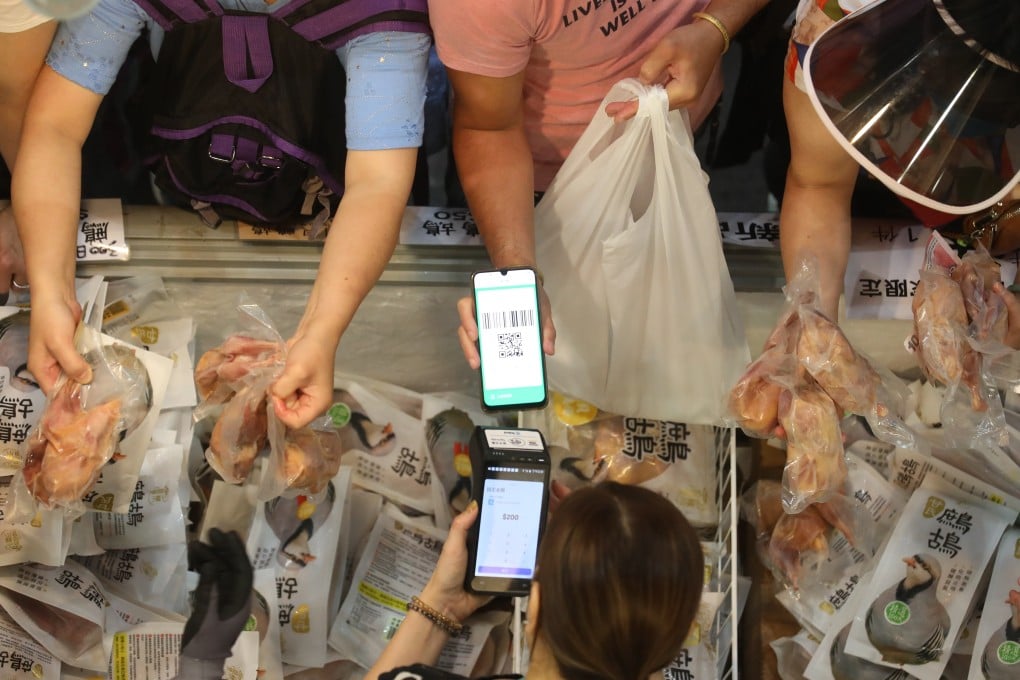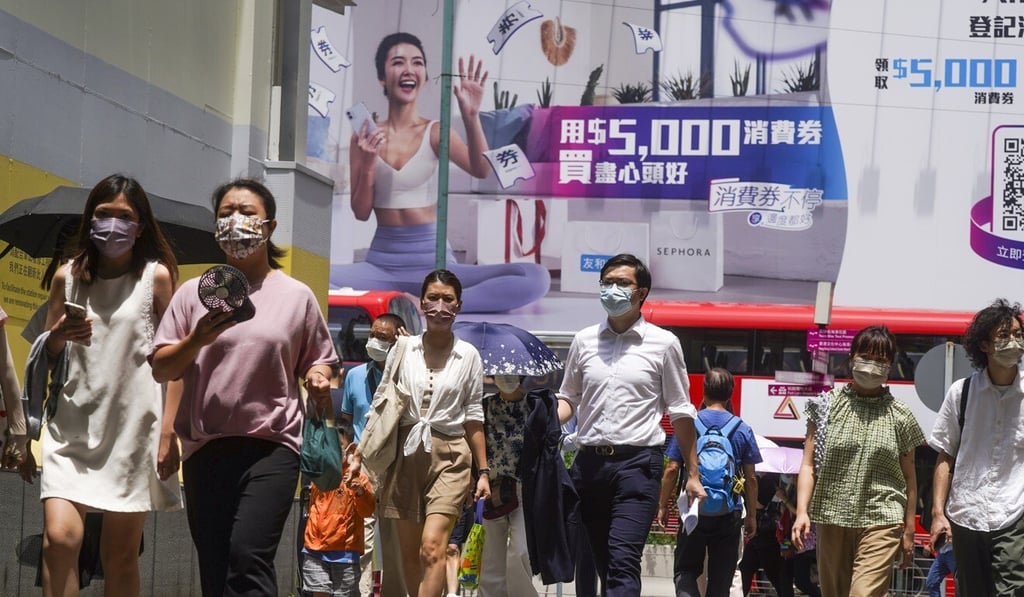Advertisement
Hong Kong’s e-voucher spending spree raises bar on economic growth expectations, finance minister says
- Financial Secretary Paul Chan ‘quite optimistic’ that predicted 0.7 per cent boost to economy will be exceeded amid scheme’s enthusiastic uptake
- New plans for Shenzhen’s Qianhai economic zone, meanwhile, said to offer ‘huge space’ to develop for local financial institutions
Reading Time:3 minutes
Why you can trust SCMP

Hong Kong’s consumption vouchers may provide an even bigger economic boost than expected, the finance minister has said, while new plans to expand Shenzhen’s Qianhai economic zone could further solidify the city’s role as a renminbi trading hub.
Financial Secretary Paul Chan Mo-po on Sunday said competition among the payment service providers chosen to administer the e-vouchers and the businesses seeking customers to spend them looked likely to drive growth that topped expectations.
“We’re quite optimistic the growth brought about by the e-vouchers might exceed the predicted 0.7 per cent,” Chan said during appearances on radio and television, though exact figures were still too early to call.
Advertisement
“When the first round of vouchers was disbursed, we saw the atmosphere among retailers and restaurants was good … In August, we raised our outlook for this year’s overall economic growth from the original 3.5 to 5.5 per cent to 5.5 to 6.5 per cent.”

Advertisement
The HK$36 billion (US$4.6 billion) scheme, intended to boost local spending and accelerate the city‘s economic recovery amid the Covid-19 pandemic, offers every adult resident HK$5,000 in local spending vouchers, with about 7.2 million people eligible.
Advertisement
Select Voice
Select Speed
1.00x